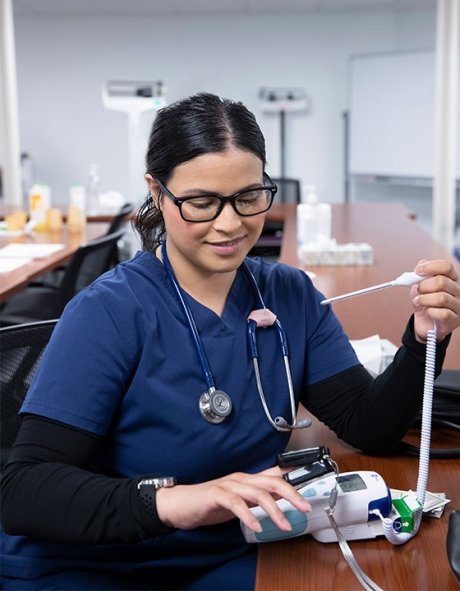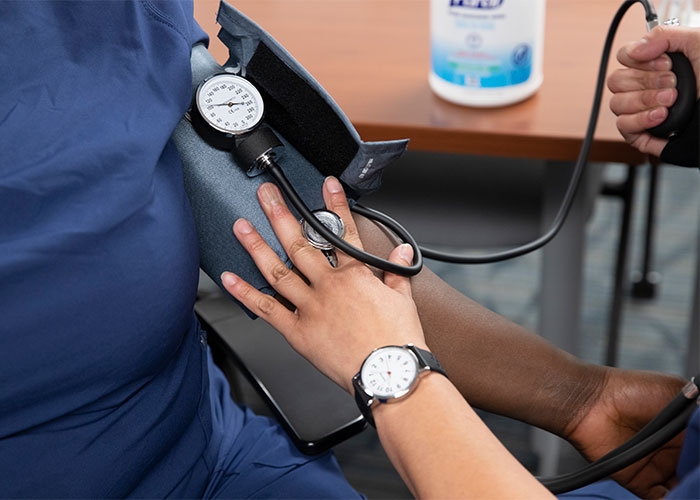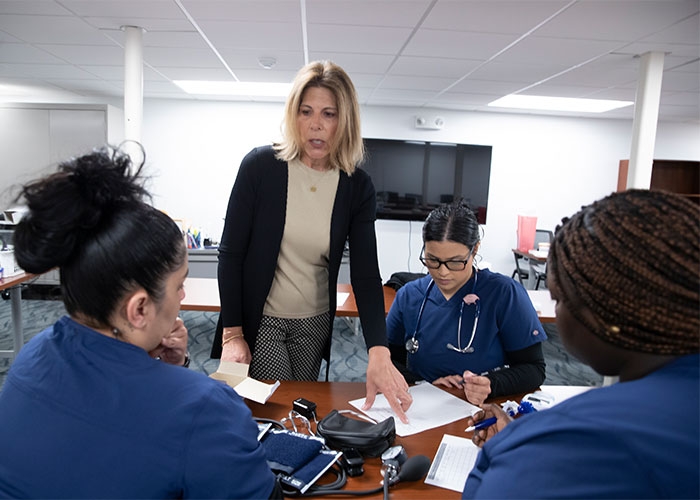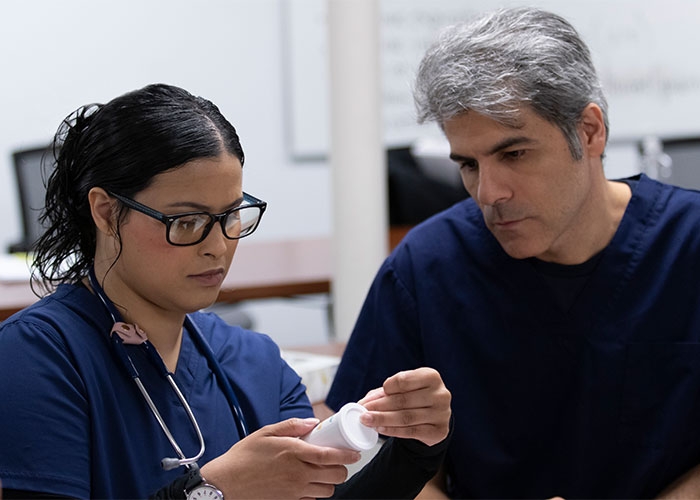
RIC prepares you for the Certified Clinical Medical Assistant exam and helps you find employment upon successful completion.
Rhode Island College offers free medical assistant training at its Workforce Development Hub in Central Falls to those that qualify. This training, which takes about five months to complete, including coursework and internship, also prepares participants for the National Healthcareer Association’s Certified Clinical Medical Assistant (CCMA) exam. Upon successful completion, participants receive a Certificate of Continuing Study from RIC and receive help in obtaining full-time employment.
Participants take courses in clinical skills and procedures, anatomy, physiology and medical terminology, taught by Lauren Lamendola, coordinator of the program. Additional courses in medical math, digital literacy, communications and career building are incorporated throughout the week. A case manager provides academic and nonacademic support.
Hands-on clinical practice covers medical procedures, such as how to take vital signs, give injections, dose medications and basic pharmacology to interpret prescriptions.


Throughout the program, participants take multiple practice exams to prepare for the CCMA exam, resulting in excellent pass rates. Upon successful completion of the academic portion of the program, they are placed in an internship, where they are able to apply the skills they’ve learned in a real-world setting.
“Students really do learn best by doing,” says Lamendola. “We place them in private physician’s offices as well as in hospitals and community healthcare centers. They shadow medical assistants, work alongside healthcare professionals and are able to fully experience what real-world patient care is like.”

Oftentimes students end up with a job in the facility in which they interned.
“I had a student who interned at a physician’s office who was loved so much that they offered to provide support for her to attend nursing school,” says Lamendola. “She started at CCRI with an associate’s degree in nursing, then went to RIC for her B.S.N. She worked for that physician’s practice for 10 years before she finally moved on. There are many great success stories like this one.”
One graduate of the program states, “The amount of support we received throughout the program really made a difference. I just want to say how grateful I am for this opportunity and for the new connections made.”
Individuals interested in becoming medical assistants should note that this is not a licensed profession. In other words, you don’t have to attend a formal training program to become a medical assistant. A physician could train an employee in their office or hire a new employee and train them on the job.
“But being nationally certified shows that you are able to perform at a higher level,” Lamendola says. “Certified medical assistants are hired more frequently than those who are not certified and they’re more likely to achieve career advancement and higher pay.”
To learn more about RIC’s Certificate of Continuing Study in medical assistant training, contact Maria Cristina Vallejo at mvallejo@ric.edu. The next cohort start date is Monday, Sept. 15.
